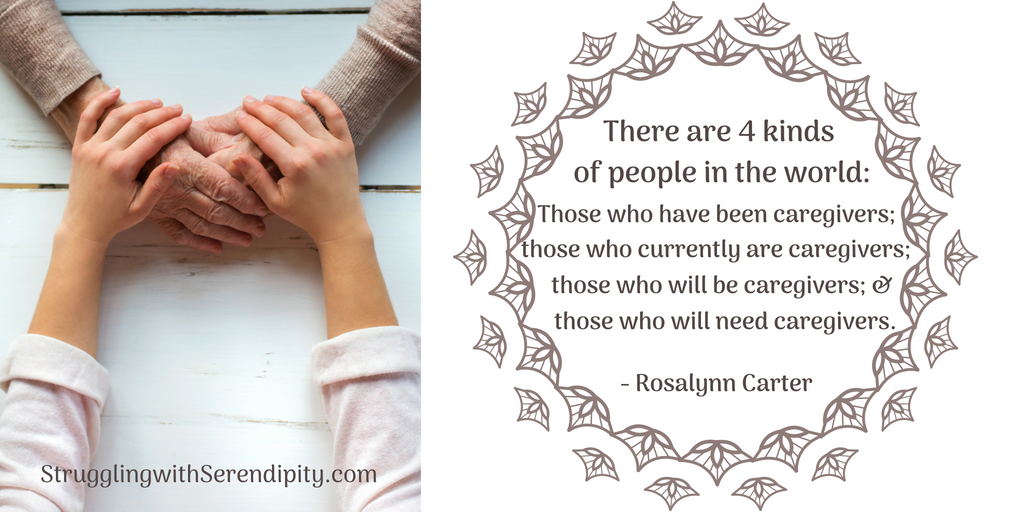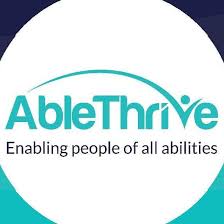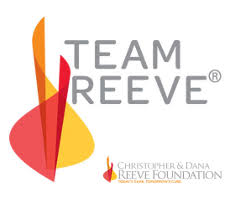|
As a new year began, I said goodbye to everyone at the group home and gratefully turned in my keys. I gave myself the gift of time to live in the moment, connect with loved ones, and take better care of myself. I aimed for the lower headache level I had before the manager job.
A few weeks later, I was invited to a birthday party at the group home. It was good to see the residents again, but it also was nice to leave, with no responsibility for their lives. Not long after, the resident at the group home with the feeding tube passed away and I attended his funeral. I cried during his sister’s eulogy as she described his joyful greeting when she visited him, something I had the privilege to witness. From our home in Ohio, I kept in touch with Beth while she finished her first official season with the Harvard Women’s Swimming and Diving (HWSD) team. Harvard was famous for extraordinary professional connections. Beth found that to be true, but she appreciated other associations as well. For her twentieth birthday in April, the college’s shuttle bus drivers pitched in to surprise her with a bouquet of flowers. Even at 6 a.m. on the way to the pool, Beth conversed pleasantly with the drivers and always thanked them. She became friends with the bus dispatcher, Bonnie, who also used a wheelchair. At the dispatcher’s request, Beth spoke at two Boston schools. Bonnie attended HWSD home meets with her young daughters, and the girls asked Beth to autograph their meet programs. In the spring, she missed college classes for a week to fly to Antwerp, Belgium with the U.S. Paralympics National Team. She earned four first-place finishes. Her hometown coach traveled with the team as a new U.S. Paralympics coach. “Coach Peggy has helped me get better with almost every meet,” Beth said. ”She’s been with me every step of the way.” When a riot broke out in Antwerp, the coaches rushed to gather up the sightseeing swimmers. Everyone was fine. Some even found inexpensive treasures in the diamond capital of the world. My daughter’s only purchase was a gift for her sister Maria, a ring with a small diamond, similar to the HOPE ring. Beth had worn hers every day since her injury. Engraved with the word HOPE, Beth’s ring looked exactly like the ones her best friends owned. The rings were made after the car accident six years before, and continued to be a meaningful reminder of the love of good friends. Next: First Time at Fenway!
6 Comments
I loved being home in Ohio, but the thought of Beth in Massachusetts made me sad, even though I knew she could handle living independently with her disability. I missed her.
We had been a team for four years. I hit a snag with an incompetent clerk and a new prescription for her medical supplies. With a fast-dwindling supply, I called the company again. I made the effort to be nice—at least the first several calls. Then, I asked to speak to the clerk’s supervisor and she refused. I lost my temper and started over with another supply company, finally arranging an overnight delivery to Beth at our expense at the last minute. My sadness amplified the normal day-to-day stress of my job. With elevated headache pain, I had trouble sleeping at the group home. I barreled through more weeks with unpaid overtime hours. Often on the verge of tears, I talked to John and let him convince me the stress of the manager job wasn't worth the money. Looking back, I could have ridden it out. Holidays were always the hardest time of the year to staff group homes. So instead of quitting my manager job in November, before Thanksgiving and Christmas, I decided to be considerate of the residents and other staff by leaving early in the New Year, almost three months away. I turned in my notice, relieved the end was in sight, and focused on setting things in order for the next manager. I talked to Beth on the phone after she finished a 2,400-yard workout in one practice: 96 lengths in the 25-yard pool, almost a mile and a half. Swimming that distance had not been possible a year before. As college competitions began, Beth would compete at all home meets at Blodgett pool as an official member of the Harvard Women’s Swimming and Diving (HWSD) team. Always too-busy, she appreciated the extra time she would gain by not traveling to away meets with the team. I wished I could have been there for the first home meet of the season in mid-November. Beth dropped fifteen seconds in the 100 free compared to her first Harvard meet ten months before! And reset two of her short course American Records. “She's probably one of the easiest people to coach in the sense that she always has a smile on her face, she's got a great positive attitude, and she's willing to try anything,” HWSD Coach Morawski said. “And she just kept getting faster and faster.” “For her to make that commitment to coach me and, this year I’m on the roster, is really important,” Beth said. “It’s been great. I love it!” Next: Together in Minneapolis! My first day as manager of a Tiffin, Ohio group home, I trained to administer meals to a resident with a feeding tube, followed by me training other staff. I liked the four men who lived at the home, and knew two of them from when I worked at the local institution. I worked 24-hour shifts, 3pm to 3pm, often three in a row. It simplified staffing the overnight hours, but challenged me, mentally and physically. Sleeping well at the group home rarely happened. I scrambled to get up to speed on preferences, goals, routines, behavior plans, staff scheduling, meal planning, grocery shopping, outings, medications, paperwork, and new state requirements. On my days off, I was on call.
The day-to-day responsibility for the health and welfare of four men was daunting. The men attended the county workshop for adults with developmental disabilities on weekdays. Ideally, that time would be used for administrative planning and paperwork. Instead, since the residents had multiple health issues, weekdays often included taking one of them to a doctor’s appointment. I learned complicated medication regimens, as well as scheduling regular appointments, ordering refills, and making sure all staff documented every small thing, every day, in the correct way. I often drove to the group home on my days off for at least a few hours, just to keep up. My agency's new quality control supervisor visited one weekday morning after the men boarded the workshop bus; she had been the manager before me of the same home. She pointed out missing papers in the resident binders, which I was aware of. I regret not being more assertive. I wish I’d spoken up and showed her my long to-do list that included the missing items. Papers she neglected to obtain as the previous manager. Instead, I stewed. Next, my agency’s director made a counterproductive decision about a resident’s behavior plan by caving in to pressure from a resident’s family. I typed up evidence to support a better approach, to avoid dependence on a walker he didn’t need. I met with the director to plead his case, to no avail. Later that day, the same resident threw a tantrum near midnight. Following the new behavior plan, I had to encourage him to use the walker by his bed on the way to the bathroom. He didn’t need one. The ill-advised plan guaranteed more acting out, increased dependency, and needless frustration all around. When his loud yelling finally ended, I poked my head into the other bedrooms to reassure and quietly tell the other residents everything was okay. Good intentions, bad outcome. The youngest resident thought my intrusion meant it was time to get up, so he jumped out of bed and started his morning routine. My attempts to explain and redirect irritated him. Nonverbal, he insisted on changing clothes and sat at the kitchen table in the dark. I tried to reason with him, saying it wasn’t time for breakfast. Agitated, he tried to tip over the table and would have succeeded, except the home had an unusually huge and heavy one. When he calmed down a bit, I brought him a bowl of his favorite cereal with milk. He finished and sat in his rocking chair in the living room, still angry. I kept him company while I wrote out the required incident reports. Next: A Difficult Decision! (This blog tells my family's story. To see more, click "blog" at the top of this webpage.)
As Beth’s sophomore year at Harvard began, we lived far apart for the first time. I bridged the 725 miles between Cambridge, Massachusetts and Tiffin, Ohio with phone calls, emails, and care packages. I also tried to help from a distance, to free up at least a little of Beth’s time for more important things, even though we both knew she could do everything she needed to by herself. I made travel plans for upcoming Paralympic swim meets. I responded to requests for details for newspaper articles and updated her resume for a reporter. I started a Challenged Athletes travel grant application for her and she finished it, adding her personal goals and the essay. I ordered medical supplies and wheel bearings, When she needed a new bag for the back of the wheelchair, I researched options, emailed her the best ones, and bought the one she selected. Beth took over repairs for her wheelchair, scheduling a service to come to her dorm only after the intermittent catching of one wheel progressed to a consistent and frustrating obstacle. Her dirty laundry piled up until she couldn’t find clean clothes to wear. Her priorities filled her days: swim training, classes, homework, volunteering, mentoring—and sleep. Grateful to be home, I reconnected with the rest of my family. John and I visited Ben in Columbus. John taught 3rd graders while Maria attended Heidelberg College full-time, worked at a video store, and led college tours, in addition to babysitting. She sang in the college choir and show choir. Maria also solidified her plan to move to the Boston area after she graduated early, in December of the following year. She had a double major in elementary education and special ed. Always busy, she wasn’t home much except to sleep, but we found times to meet at Taco Bell to catch up over burritos and sodas. I loved my suddenly wide-open life, but I also felt the need to get a job to help with finances, even though John never pushed me to work outside the home. Without a college degree and with little opportunity in our small town, I had few options. Any minimum wage job would limit me to a very low income. I thought about working at the Tiffin Center again, a state job and my highest wage option. However, John might retire after the next school year, which meant we might relocate. It wasn’t fair to the residents to purposely work at the center for a short time. Plus, the thought of starting over again in direct care in the most difficult module was daunting. Working at a group home could be difficult, too, but seemed a bit easier and more flexible than the Tiffin Center. I decided to bite the bullet and manage another group home for the same agency I worked for earlier. Before accepting, I toured the Tiffin home, a modern duplex in good condition. The physical environment was a big improvement over the dilapidated house I had managed before. I said yes. I wish I had said no. (This blog tells my family's story. To see more, click "blog" at the top of this webpage.)
Our family calendar looked like a work of art with many notes in different colors. Beth’s last few months of high school filled up with senior events. She kept up with swim training and National Team paperwork. Her scholarship applications paid off with presentations in three cities. Sadly, we would have to miss the spring wheelchair games in Michigan and Ohio. Beth trained a junior to take over the school newspaper and prepared the final issues. She studied for AP exams, though Harvard gave no college credits for AP scores. We shopped for a prom dress. She picked out a strapless style in light blue chiffon that fell between her knees and ankles—so it wouldn’t get caught in the small front wheels. Online, I showed her what looked like the perfect jeans, made especially for wheelchair users with a higher back and a lower front. She wasn’t interested. Predictably. Ready to be done with high school, Beth had a classic case of senioritis. My job as a group home manager taxed my time, always on my mind. Some aspects of the job seemed easier with repetition, like complicated medications. The overwhelming responsibility never changed. I anticipated problems, but many could not be diffused. I barreled through my twenty-four shifts with a nagging headache I did my best to ignore. On my days off, I fielded numerous phone calls from my staff. With the group home basement and every closet jammed full of stuff, I received permission to have a garage sale. I cleared out more than a few mice nests along with tons of junk. The residents helped enthusiastically to earn their own personal money for the possessions they chose to get rid of. A big success, the sale fell on a beautiful spring day. With the income from the home’s extra stuff, I planned a very rare vacation for the residents. The trip to Niagara Falls with two of my staff wouldn’t have been possible without the sale. The April day when I found another nest of baby mice at the group home, I gladly gave the agency my three-month notice and started the countdown to our Harvard adventure. Next: Minneapolis Trials! (This blog tells my family's story. To see more, click "blog" at the top of this webpage.)
John drove Beth to and from high school swim practices on the evenings I worked at the group home. Ohio's winter weather froze the streets--and wheelchair wheels. Beth insisted on wearing her favorite red flip-flops to practice. They stayed in place with an elastic strap I sewed on. She plowed her manual chair through light snow. Responding to questions about her footwear, she replied with a smile that she couldn’t feel her feet. If pressed, Beth also mentioned the very short distance from the YMCA entrance to the car and from the car garage to the house. Going anywhere else in icy conditions, she wore shoes or boots. With no socks. Despite several different kinds I bought for her to try. Beth survived her healthy teenage stubborn streak, without frostbite, by limiting her time outdoors in the winter. December blurred with my added responsibilities at the group home. We passed the state inspection with flying colors, only because I put in volunteer hours. The four men planned with me to host a Christmas party for their family and friends. It was a big deal for them, a first for the group home. Beth visited ahead of time to help us make cookies for the event. It made me happy to see how much the residents loved the well-attended party. I bought college choir CDs from Ben's and Maria’s holiday concerts and played them continuously in the car. At the Christmas party in Toledo for the spinal cord injury group, a mom thanked Beth for encouraging her young son to start swimming lessons. His scoliosis stopped progressing, avoiding major surgery. The doctor credited swimming for his stronger back muscles. At the first home meet of the season for the high school team, Beth swam the 100 butterfly in under four minutes. Her time qualified for a US Paralympics S3 American Record. However, it didn’t count because the meet had not been sanctioned ahead of time with USA Swimming. “Beth just keeps improving with every meet,” Peggy said. ”It's awesome to watch her strokes and racing ability move forward.” A picture in the Tiffin newspaper showed teammates at the end of the lane cheering Beth on as she turned at the wall. Lizzy and Ellen shouted from the bleachers. “It's fun climbing out of the pool and hearing people clapping for you,” Beth said. “It gives you a little boost of confidence.”  (This blog tells my family's story. To see more, click "blog" at the top of this webpage.) Managing the group home escalated my headache with less sleep and a full dance card. The base level of pain had gradually increased over a dozen years. How bad would it get? Over-the-counter medications didn’t make a dent. When I tried an opiate after surgery, I felt worse, not better. A prescription anti-inflammatory muted the headache—and increased my stroke risk. I read a study about how the brain gets wired to frequent pain signals, making it difficult to break the cycle. Obviously. I made a concerted effort to stay positive and suppress my fears of higher pain. At home, I kept up with Beth and drove her to swim practices on my evenings off. She took on new roles, unafraid, including the top job of news editor of the school newspaper, The Tiffinian. A feature in the paper titled Senior Superlatives reported on a class election that voted her most likely to be President and most likely to be rich. “I didn't want both so I gave the rich title away,” Beth said, with a laugh. The votes of her classmates also put her on the Homecoming Court, surprising her. “I was shy in high school,” Beth said. “I had more fun than most, but I wasn't a cool kid.” The night of the Homecoming football game, the Court arrived at the stadium in convertibles before lining up on the track to be presented to the crowd. A problem we didn’t anticipate handed Beth a rare defeat. “I wheeled myself everywhere, but my escort wanted to push my chair across the field,” she said, while also admitting the bumpy turf was difficult. It was a standoff on the 50-yard line, her escort equally as stubborn as Beth. She reluctantly gave in. “But I kept my hands on the wheels and pushed myself at the same time!” When the pageantry ended, Beth sat with her best friends on the platform in the student section to watch the game. Ellen and Lizzy gave her a bouquet of flowers and an adorable present. They made a Build-A-Bear and dressed it up with a fancy dress, homecoming crown, magic wand, and queen banner. They had been sure Beth would win. She didn’t, and hadn’t expected to. But... The queen bear was a sweet reminder of friends always in your corner.  (This blog tells my family's story. To see more, click "blog" at the top of this webpage.) My job as group home manager started with a bang. My new boss handed me keys and suggested I meet the residents over the weekend. If the woman on duty asked if she would be my assistant, I should tell her no. Driving to the home, I passed the pay phone I didn’t use the night of the accident, as well as the field where my car flipped three times. I knocked on the front door and entered a dark, depressing living room. Four residents watched TV while a woman crocheted in a separate room in front of another TV. Most jobs didn’t allow time for staff hobbies, including ones at group homes. I kept quiet and observed. She asked about the assistant position and when I responded, she argued. Leaving shortly after with the residents for an outing, she hit my parked car with the company van. Presumably by accident. I worked three 24-hour shifts a week including weekdays while the residents usually attended a workshop. I drove them to numerous doctor visits. I also volunteered additional time when Beth was in school. A mess of paperwork needed to be cleaned up in short order for a state inspection and the house had been neglected to the point of being unhealthy. I bleached the mold on and in the refrigerator and cleared legions of powdery bugs from overhead lights. I scoured decades of yellow wax off the kitchen floor, cleaned mice droppings out of cupboards, and threw away infested food. My mom helped me replace the wallpaper to brighten the living room. My hectic paid hours focused on the residents and improving their quality of life. I gave a pep talk at a staff meeting to enlist help to raise the bar. Thankfully, the crocheting woman transferred to another home. I aimed for a level of care I would want for someone I loved. With few staff and fewer resources, I fell short. Though I took a small measure of pride in trying. I recognized the seriousness of my responsibilities, aware of my impact on the day-to-day mental and physical health of the residents. Group home managers doubled as underpaid psychologists, nurses, and nutritionists. I expected the job to be taxing, like my earlier Tiffin Center job, where most of the residents had grown up in an institution without a loving family. The difference at the group home? Working alone most of the time. I dispensed a complicated litany of pills, my least favorite part of the job—especially when a volatile resident refused to take his psychotropic medicine. Despite behavior plans I followed, I filled out scores of incident reports. I also slept poorly three nights a week on an uncomfortable day bed. But it wasn’t all bad. Three of the residents played on a basketball team and I cheered for them at games with the fourth. Other outings could be fun, too. Sometimes. In the middle of the night, a deaf resident occasionally switched on his TV and cranked up the sound. He giggled when a sleepy worker stumbled in and out to turn off the volume. I waited to smile until after I turned to walk out of his room. Next: Beth and Homecoming! (This blog tells my family's story. To see more, click "blog" at the top of this webpage.)
I had the rare gift of time as Beth started her senior year of high school. She didn’t need me at school midday. Never bored, I protected my free hours by not turning the TV on during the day. I personalized three mother’s journals, one for each of my kids, with childhood memories and family history. I picked up needlework and writing projects, humming along to classic tunes playing in the background. I connected with Maria when she wasn’t at one of her jobs, college classes, or choir practices. Sometimes we met at Taco Bell to catch up over lunch. I called my parents on the phone and sent care packages to Ben at OSU. I walked for exercise. I met a friend for brunch most weeks at Bob Evans. When the waitress saw us approach from the parking lot, she had our iced teas ready. John never suggested I work outside the home in any way. We had enough, with his steady income and our frugal ways. But I convinced myself that I should return to a paid job for the school year until Beth started college. She gained more independence and encouraged me, assuming I wanted to work. Beth liked the idea of pushing the limits of her disability more often, and not relying on me when she was rushed or tired. I debated between a demanding job at better pay and a minimum wage job with less responsibility. With few choices in Tiffin, I decided to support adults with developmental disabilities. A job where I could make a small difference. A local agency offered me a group home manager position in a nearby town. A familiar job. Years earlier, a few weeks after my wedding and newly nineteen, I assumed the role of live-in manager at a different group home. John and I moved in before he started his first elementary teaching job. The year was 1977, during the first wave of the exodus from Ohio institutions. The best candidates for community living left first, including my four residents. Even so, the transition challenged everyone involved, every day. A few decades had passed since my first group home job, and some state institutions had closed. The exodus slowed to a trickle and included residents with multiple challenges. I accepted my new manager position on a Friday—without visiting the group home first. I hoped for the best. I could handle most anything for less than a year. Couldn’t I? Next: Overwhelming responsibilities! |
Cindy KolbeSign up for my Just Keep Swimming Newsletter by typing your email address in the box. Thanks!Categories
All
Archives
November 2022
|








 RSS Feed
RSS Feed











